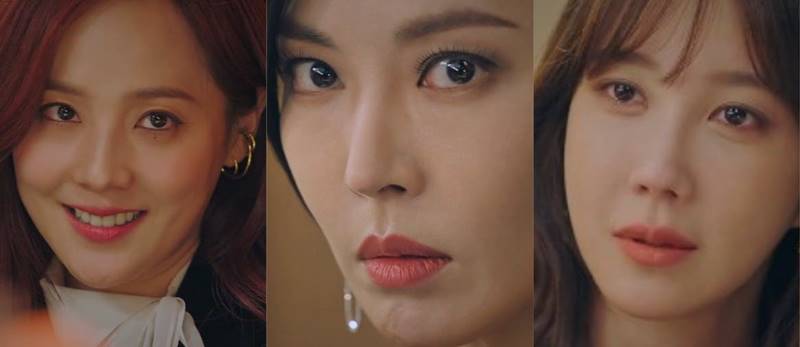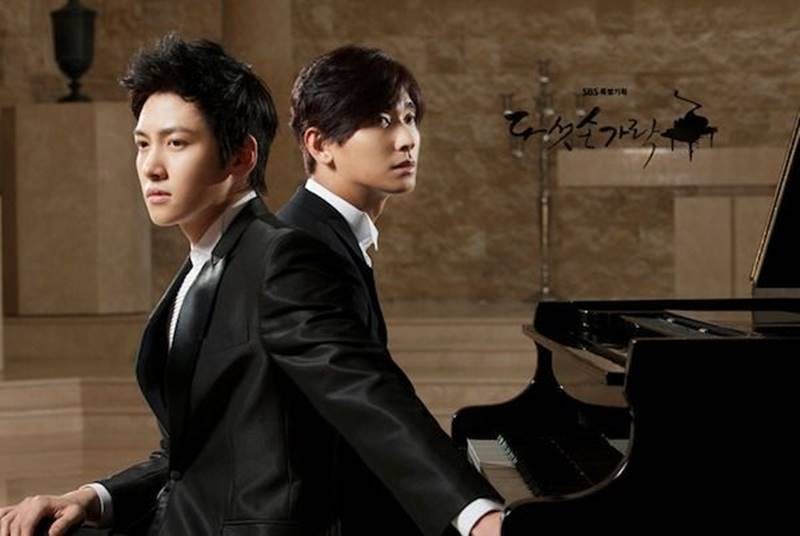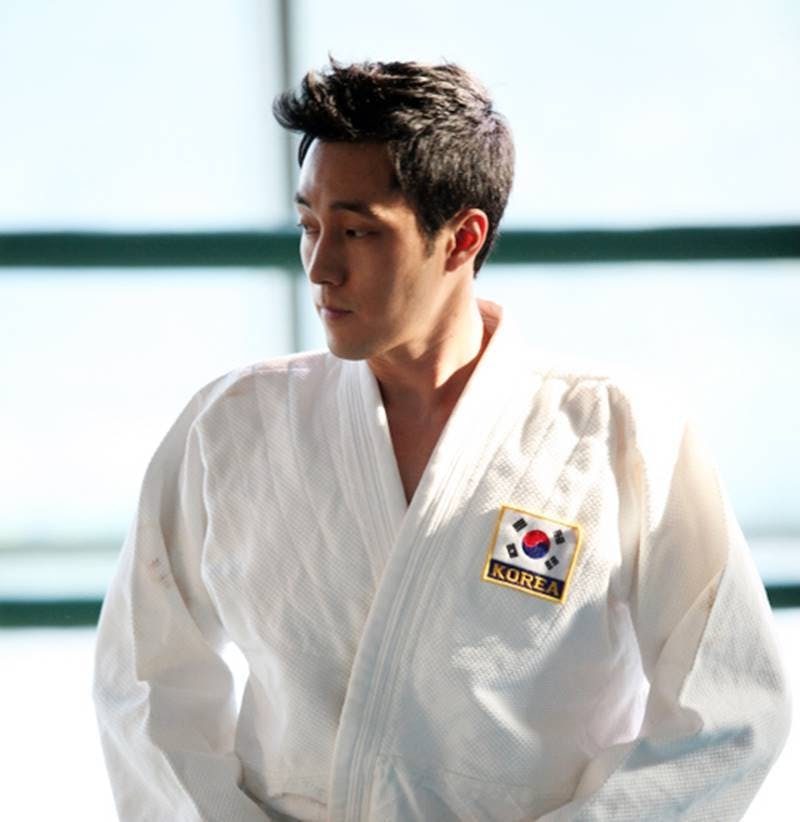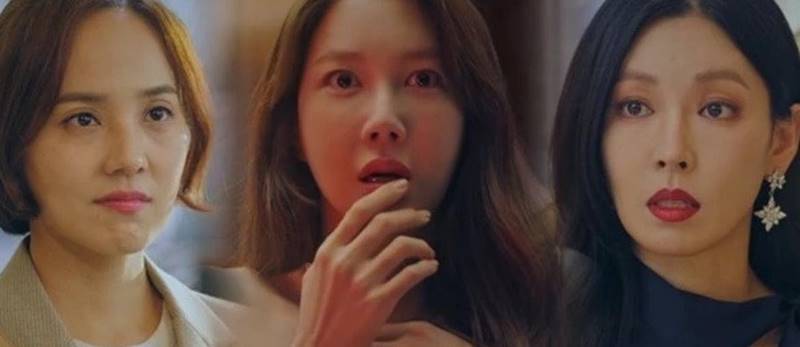By Jae-Ha Kim
Kocowa.com
March 25, 2021
If you’re a fan of K-dramas, you’ve probably heard the term makjang (막장) used to describe some of your favorite series. But do you know what it means? When I was growing up, I never heard my parents use it to describe any of their favorite shows. And that’s because it’s a relatively new portmanteau of two words: majimak (마지막), which means final, and ggeutjang (끝장), which indicates death or the end having been reached.
By now, you’re probably familiar with the infamous kimchi slap scene from the MBC morning drama, “Everybody Say Kimchi.” That’s makjang. The scene was parodied in “Search: WWW” by Lee Jae-Wook (“Extra-ordinary You“), where he played a mild-mannered actor portraying an evil cad in a K-drama. His late wife’s elderly mother seaweed slaps him and vows to avenge her daughter’s death … which she does, by undergoing plastic surgery to transform herself into a young beauty set on ruining his life. That’s makjang!

So many K-dramas utilize emotional and over-the-top plots to create highly watchable makjang series. Let’s look further into this, shall we?
SPOILER ALERT: I won’t spoil any currently airing weekly series. But I will discuss some plot points from K-dramas that have already finished their run.

If you’re like me, you’re patiently waiting each weekend for new episodes of “The Penthouse 2” to air and I’m not going to reveal any of those plot points. So, let’s take a look at some of the makjang moments from the first season. On the surface, “The Penthouse” is a parable about the haves and the have nots. The rich folks live in the tallest building in Seoul, where they can literally look down on the little people they want nothing to do with. But then the makjang elements take over. A bloodied teenage girl appears to drop from the sky into the arms of a classic sculpture. Her mother — who doesn’t realize her baby was switched at birth — witnesses this fall, but doesn’t know the soon-to-be-dead girl is her daughter. The woman’s husband has a torture chamber in their penthouse apartment where he beats his twins. The twins and their friends are the school bullies, who trap a fellow student on a bus and set it on fire. Honestly, there are more makjang moments in both seasons of “The Penthouse” than not.

So Ji-Sub‘s series “I’m Sorry, I Love You” was a huge hit for the actor. The makjangness of this show is off the chart! Ji-Sub plays a rough-around-the-edges con man name Mu-Hyeok. As far as he knows, he was abandoned at birth and grew up in Australia with his abusive adoptive parents. He ran away from home and returned to Korea, where he learned Korean and hatched a plan to get revenge on his birth mom for abandoning him. But wait! She didn’t abandon him! She had been told her baby died at birth. So she adopted a baby boy, who grows up to be an idol. Sometime between all of this, Mu-Hyeok was shot in the head a couple times. When he finally meets his mom, she is rude and dismissive of him…until she asks him to donate organs to her adopted son. (Seriously, I’m not making any of this up.)

In-Ha (Ji Chang-Wook) and Ji-Ho (Ju Ji-Hoon) play piano virtuosos who are half brothers in “Five Fingers.” They both fall in love with a young woman named Da-Mi (Jin Se-Yeon). During a housefire when they were children, their mother accidentally rescued Ji-Ho — the product of her husband’s extramarital affair —thinking that he was her beloved biological son. In-Ha survived, but suffered damage to some of his fingers. Da-Mi’s deaf father also died in the fire, while trying to rescue the family. Not that his good deed was appreciated. The family matriarch pinned the fire on him, leaving his family destitute and shamed. She was quite the witch, sabotaging Ji-Ho’s life. But there’s a big dun dun dun moment. Ji-Ho is actually her biological son, too, from a previous relationship before she was married. Her stepmother told her the baby died and sent him off to an orphanage. Her sadistic husband was angry that she had loved someone before him and brought Ji-Ho into the family, passing the child off as his own. He enjoyed watching his wife treat her own child horribly.

Sorry, not sorry, for including another So Ji-Sub K-drama, but “Ghost” adds a makjang twist to this police cyber crime procedural. Ki Young (Daniel Choi) and Woo Hyun (So Ji Sub) are set up and engulfed in a fiery fire. Woo Hyun dies. Ki Young is badly disfigured and unrecognizable. Mixed up nametags result in cosmetic surgeons reconstructing his face to look exactly like Woo Hyun. Never mind that the two men were of different build and height. Anything is possible with a makjang plot. Fun fact: The villain is portrayed by Um Ki-Joon, who is ramping up the makjangness in both seasons of “The Penthouse.”
To sum it up: Two men pining for the same woman isn’t makjang. One man killing another (as Joo Dan-Tae did in “The Penthouse”) and marrying the widow is. Getting plastic surgery isn’t makjang. But asking viewers to believe cosmetic surgeons can transform a person into someone decades younger (or a different height!) is.
As far as I’m concerned…long live makjang!

One thought on “Are These K-dramas Makjang Enough for You?”